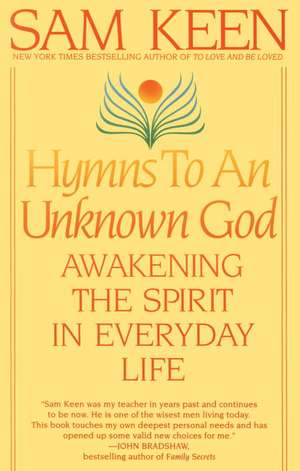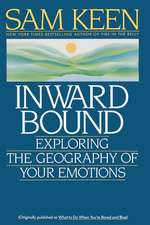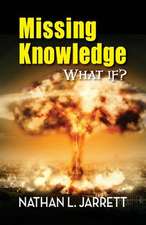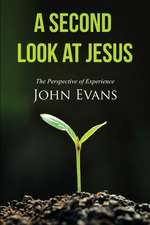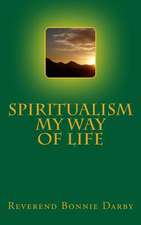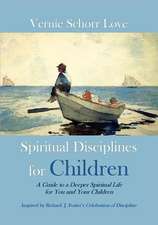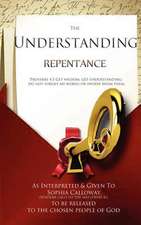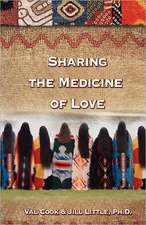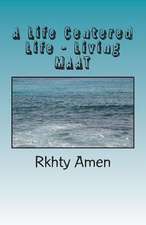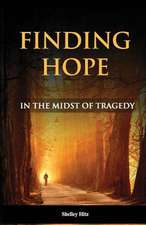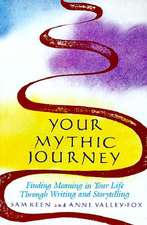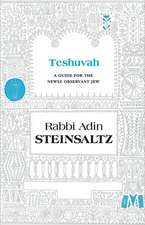Hymns to an Unknown God: Awakening the Spirit in Everyday Life
Autor Sam Keenen Limba Engleză Paperback – 31 aug 1995
Using practical examples from his and other people's lives, Keen tells readers how to cut through what he calls the "spiritual bullshit," and recover the sacred in their love affairs, families, jobs, and politics -- in short, how to recover the "Unknown God." Down-to-earth and articulate, Sam Keen is a popular social commentator, philosopher, and teacher. He describes himself as "overeducated at the Ivies," with degrees from Harvard and Princeton. His work has been featured in a special Bill Moyers PBS interview, and for over twenty years he was a consulting editor at Psychology Today.
How to Use Your Spiritual Bullshit Detector: In a world of one-minute solutions, false spiritual leaders, and instant spirituality, how can you tell which beliefs are valid and separate the bogus from the genuine.
Sex and the Spirit: Why is it that sex and spirituality are so interconnected and confusing? Keen explains the conflict between "I want" and "I should," and tells readers how to integrate sensuality, sexuality and spirituality to experience truly deep and loving relationships.
Consecrating Our Days: Rituals for Living: Keen gives more than a dozen suggestions for personal rituals to remind readers of the sacredness in their everyday lives, including creating a private place as a personal sanctuary, learning to make time to think deeply, setting aside personal days as times of celebration, and more.
Preț: 109.54 lei
Nou
Puncte Express: 164
Preț estimativ în valută:
20.96€ • 21.94$ • 17.45£
20.96€ • 21.94$ • 17.45£
Carte disponibilă
Livrare economică 10-24 martie
Preluare comenzi: 021 569.72.76
Specificații
ISBN-13: 9780553375176
ISBN-10: 0553375172
Pagini: 336
Dimensiuni: 134 x 209 x 23 mm
Greutate: 0.3 kg
Editura: Bantam
ISBN-10: 0553375172
Pagini: 336
Dimensiuni: 134 x 209 x 23 mm
Greutate: 0.3 kg
Editura: Bantam
Extras
PRELUDE: The Yearning
"Any journalist worth his or her salt knows the real story today is to define what it means to be spiritual. This is the biggest story--not only of the decade but of the century."
--BILL MOYERS
Spirit: "the animating or vital principle; that which gives life to the physical organism in contrast to its purely material elements; the breath of life."
--WEBSTER'S DICTIONARY
Spirit.
Breath.
The animating principle.
The prime mover.
Breathing out.
Breathing in.
Expiration.
Inspiration.
Dying and borning again.
In every cycle of breath, between the emptying and the inflowing, there is a moment of absolute calm, an instant when history comes to an end. Then, the yearning begins, the divine discontent, the lungs praying to be filled, the body longing to be animated by spirit.
To catch the invisible wind, to map the itinerary of spirit, study the
outlines of longing. Just as an echo in a cave brings news of unfathomable depths, in our yearning is our nostalgia for the future. In the emptiness between breaths, we hear a whispered promise of fulfillment, we sense the redolence of a rose now only in the bud.
Breathe through us, breath of God, fill us with life anew.
VOICES OF YEARNING
"As the hart panteth after the water brooks, so panteth my soul after thee, O God."
--PSALM 42
What does the concept of spirit mean to us today? Do most of us even have a sense of it anymore? And of those of us who still believe in a place for the spirit, a place called soul, a god, how many have a daily experience of it? Is it possible in this chaotic day and age to have a sense of the sacred in everyday life, or do we have to check our spirits and our god at the workplace door?
What might it mean to live in a spiritual manner in these traumatic times? Today, the reality of the spiritual dimension is most obvious by its absence. We yearn for something that will give a sense of meaning and purpose to our daily lives, something more engaging than paying lip service to the idea of God or attending worship on the weekend. We are haunted by a vacuum. Our hearts are shaped by something that hasn't happened to us--yet. Multitudes of modern seekers are full of emptiness, aching to be soulful, longing for a spark of inspiration that will ignite a passion that will lift them beyond the pettiness of getting and spending, that will animate their minds, their bodies, their spirits. We are hungry to recover the sense of the sacred that is currently painfully missing from our love affairs, families, jobs, and politics.
No week passes when some friend or stranger does not speak to me about the yearning.
One night not long ago, after too much wine (in vino veritas), an old friend--fortysomething, brilliant, sophisticated, successful in her career as an event promoter, exhausted after a year of sixty-hour weeks-- poured out her heart to me: "None of it means anything anymore. Nothing I do. All I want is to have a few animals, grow a garden, and pray. I am from the death-of-God generation. I always despised religion. My father worked on the atomic bomb, and I always prided myself on my scientific intelligence. I don't even have any image of God. But I can't manage my life anymore without prayer."
Another friend, a recently "discovered" artist in his early sixties, confided: "After weathering several midlife crises, I am finally comfortable with myself, have a good marriage, and have gotten my children launched and out of the nest. In the last years I have become moderately famous and financially successful beyond my wildest expectations. I have bought everything I ever wanted--an elegant house, a fine car, adventurous vacations in exotic parts of the world. I have given to the charities of my choice and been generous to my family and friends. As far as I can tell, I don't have any unmet needs or unfulfilled desires. But I yearn for some kind of fulfillment I can't even imagine or name, except to call it spiritual."
A new acquaintance, a Los Angeles real estate developer just turned fifty, a multimillionaire with a taste for fast cars and Italian fashions who is at once tough-minded and generous, told me over dinner in a fine restaurant: "I've always enjoyed making money, and I've been good at it. I like the good things money can buy--a Maserati and a world-class house. Money has always taken care of me. But it isn't enough anymore. There is a void that money doesn't fill. I need to change my life."
In what was to have been a casual phone conversation, a San Francisco lawyer I have known for years--forty-nine, quicksilver, handsome, master of puns and wit, sharp dresser, twenty-four years on alcohol and drugs, seven years sober--began to talk about life rather than law: "It all began when a friend said, 'You can't keep doing all this shit, or you're going to kill yourself. Why don't you come to an AA meeting with me?' By then, I was feeling desperate. I hated myself and was filled with enormous anxiety, fear, and pain, but I couldn't imagine anything that would make me feel okay. One day I was driving down the road, and I started to cry, and I didn't want anyone to see me so I put on my sunglasses. Then I started to howl, and I had to roll up the windows so people on the freeway couldn't hear me. So I went to the meeting.
"The first thing that struck me was the faces. There were smiles. And they welcomed me. I could see that no matter what problems these people had--and they had lots of them--they didn't have my problem anymore. They weren't isolated, lonely, or hopeless. Their faces kindled my yearning for peace and a sense of well-being. Somehow, they made me realize that it was possible that somewhere down the road I could feel I was okay, that I could be connected with other people instead of being shut up in my own squirrel cage with my fear.
"Today, more than seven years later, a young man came into my office, and he was filled with hatred because a woman had falsely accused him of sexually abusing her child. After I explained that there was no legal case against him, I told him he should pray for her because otherwise he would never be able to understand her, forgive her, or get rid of pain he carried around. It reminded me of the first time I prayed. My wife had done something that hurt me, and for once I was innocent of the charge. So I had spent much of the day eaten up by anger, filled with resentment, and plotting revenge. My pain was so immense, I knew I had to find some way to get rid of it. I had a copy of the AA prayer, so I sat in my car in the parking lot and read it. 'God, I offer myself up to thee . . . relieve me of the bondage to myself so I can do thy will.' It embarrassed me. I had always denied the existence of God, of any power greater than myself. But nevertheless, I read it again and again, and before long I began to feel relief. Instead of being caught up in my pain, I began to understand why my wife had lashed out at me and I found I could forgive her. Since then I pray, because it makes me taller, stretches me toward what is here. I don't pray to some superpower to make things better. But I open myself to the power that infuses and informs all life and pray to be relieved of the bondage to myself"
A couple of years ago, I received a letter from a woman I admire, an adventurous seeker, mother of three, and ex-wife of a famous doctor. She explained to me why she has become a devotee of Indian guru Bhagwan X. "The hunger that led me to Bhagwan was the great unanswered question of the twentieth century: 'To what may we surrender?' "
I replied to her letter: "You have the right question, but the wrong answer."
The spiritual craving of our time is triggered by the perennial human need to connect with something that transcends the fragile self, to surrender to something larger and more lasting than our brief moment in history.
These voices are a small part of a chorus of longing of a new community of seekers who are setting out on a quest. Perhaps you are one of those who are alive with longing that cannot be satisfied by traditional religious answers. While orthodox believers seek to follow in the footsteps of Jesus, Moses, or Mohammed, untold numbers of spiritual seekers have begun to explore uncharted paths. Many people who a decade ago would have been embarrassed to acknowledge their longings for transcendence are speaking openly about inner journeys and vision quests. Spirituality is in. Millions who have become disillusioned with a secular view of life but are unmoved by established religion in any of its institutional forms are setting out on a quest for something--some missing value, some absent purpose, some new meaning, some presence of the sacred.
Here are some of the features of the changing spiritual landscape, the renaissance of our time:
We are experiencing a rise of spiritual individualism and uncorseted religious experimentation. The new quest is for "a road less traveled" (five hundred weeks and counting on The New York Times bestseller list). Gallup reports that by the end of the 1970S, "a surprising number of Americans were developing an interest in the inner or spiritual life. A projected 6 million persons were involved in transcendental meditation, 5 million in Yoga, 3 million in the charismatic movement, and 2 million in Eastern religions.... Noncredal and nonauthoritarian Religious Science, Unity, and New Thought churches are growing rapidly." The trends that are shaping religion as we move toward the turn of the century are "an intensive spiritual search and a continuing desire for inward and spiritual growth, coupled in some measure with a rejection of the authority of the churches."
Many people are exploring the relevance of American Indian religion and practices--vision quests, the ceremonial use of peyote, and the like.
There is a growing interest in myth and ritual. Carl Jung has been rediscovered. The books and PBS documentaries of Joseph Campbell have achieved unprecedented success. A dozen or more related magazines, such as Parabola and Gnosis, have sprouted up in the last decade.
East has met West. Zen, Tibetan Buddhism, and dozens of assorted Indian gurus have introduced many Westerners to meditation and spiritual disciplines--aikido, kung fu, and jujitsu academies teaching the martial arts are found in every major city.
Alcoholics Anonymous and similar twelve-step programs are replacing addiction with dependence on "a Higher Power."
Therapists are exploring the common boundary between spirituality and psychotherapy, and the American Psychiatric Association has included a new diagnostic category, "Religious or Spiritual Problem," in the fourth edition of its standard Diagnostic and Statistical Manual.
A feminist spirituality has rediscovered the Goddess and introduced feminine metaphors for the holy into the language and liturgies of every major denomination.
There is growing pressure to introduce "the fourth R," religion, into the public school curriculum.
Medical pioneers are showing that love and spirituality play an important role in healing.
The ecological movement has gone beyond the notion of a sustainable economy and limits of growth to embrace a spiritual commitment to reverence for life. Within the Roman Catholic Church, creation spirituality is capturing the imagination of many. Thomas Berry suggests that we put the Bible on the shelf for twenty years and learn to read the natural world as scripture. There is a growing awareness that the ecological perspective is, in essence, a theological revolution based on a sense of the sacredness of all life.
Fortune 500 executives are telling us that work should provide opportunities for personal and spiritual growth as well as financial rewards.
Systems theory has emerged as the dominant trend in most disciplines, from psychology to computer science, replacing the old method of piecemeal analysis, in which we broke everything down into its component parts. The tendency in recent thought is to stress synthesis, networks, interaction, process. The old notion that the whole is the sum of the parts has been replaced by the idea that the parts can only be understood as functions of the dynamics of the whole. The nineteenth-century vision of lonely billiard-ball atoms accidentally colliding with each other to form the varieties of life has been replaced by a vision of a universe made up of an intricate web of relationships, a net of jewels.
The old warfare between science and religion has ended, and a new romance has begun. A marriage is in the making between physics and mysticism. Quantum physics has demonstrated the limit of the old time-bound, space-bound Newtonian materialistic universe of isolated atoms. Paul Davies, professor of mathematical physics at the University of Adelaide, concludes: "Through conscious beings the universe has generated self-awareness. This can be no trivial detail, no minor by-product of mindless, purposeless forces. We are truly meant to be here."
Perhaps your success or failure in love or work has left you with an urgent need to find some greater meaning and purpose in your life. Perhaps a near encounter with disease or death has eaten away at your old certainties and filled you with doubts. Perhaps your despair at the madness of modernity has created a hunger for hope, a need for a new vision of the sacred.
The crisis and quest I describe and map in Hymns to an Unknown God is both cultural and personal, both modern and perennial. The search to determine whether there is any reality that answers to the names of spirit, soul, or God can only be a passionate existential journey to discover the deepest meaning of being a person. In this sense, every woman and man in every age faces a crisis, a time of reckoning when she or he is challenged to explore and define the self, to find a vision and a set of values that give meaning to daily life. To help you in your self-examination, Chapters 1 through 6 provide detailed ways and questions for dissecting your life and the sources of your happiness and unhappiness, and a blueprint for sacralizing your life. The following four chapters show you ways in which you can integrate your new views of self and spirit in your sexual and love relationships, in your work, in your ways of being in the environment, and in creating a new kind of compassionate community. The final chapter suggests more than fifteen rituals for consecrating everyday life.
Just as there is no universal diet that is healthy for all persons, just as Jack Sprat could eat no fat and his wife could eat no lean, no single spiritual diet will be nourishing for everyone. The ways we metabolize meaning are as profoundly different as the ways we metabolize food. Some thrive on a diet of elaborate symbols and will be nourished by a high church liturgy, an intricate Tibetan tanka, or a Jungian mandala. Others are allergic to excessive theological ritual and will do much better with Quaker silence or Zen meditation.
Probably, at this moment when gender roles are being redefined, the spiritual fare necessary to nourish women and men is different. More coffee for women
"Any journalist worth his or her salt knows the real story today is to define what it means to be spiritual. This is the biggest story--not only of the decade but of the century."
--BILL MOYERS
Spirit: "the animating or vital principle; that which gives life to the physical organism in contrast to its purely material elements; the breath of life."
--WEBSTER'S DICTIONARY
Spirit.
Breath.
The animating principle.
The prime mover.
Breathing out.
Breathing in.
Expiration.
Inspiration.
Dying and borning again.
In every cycle of breath, between the emptying and the inflowing, there is a moment of absolute calm, an instant when history comes to an end. Then, the yearning begins, the divine discontent, the lungs praying to be filled, the body longing to be animated by spirit.
To catch the invisible wind, to map the itinerary of spirit, study the
outlines of longing. Just as an echo in a cave brings news of unfathomable depths, in our yearning is our nostalgia for the future. In the emptiness between breaths, we hear a whispered promise of fulfillment, we sense the redolence of a rose now only in the bud.
Breathe through us, breath of God, fill us with life anew.
VOICES OF YEARNING
"As the hart panteth after the water brooks, so panteth my soul after thee, O God."
--PSALM 42
What does the concept of spirit mean to us today? Do most of us even have a sense of it anymore? And of those of us who still believe in a place for the spirit, a place called soul, a god, how many have a daily experience of it? Is it possible in this chaotic day and age to have a sense of the sacred in everyday life, or do we have to check our spirits and our god at the workplace door?
What might it mean to live in a spiritual manner in these traumatic times? Today, the reality of the spiritual dimension is most obvious by its absence. We yearn for something that will give a sense of meaning and purpose to our daily lives, something more engaging than paying lip service to the idea of God or attending worship on the weekend. We are haunted by a vacuum. Our hearts are shaped by something that hasn't happened to us--yet. Multitudes of modern seekers are full of emptiness, aching to be soulful, longing for a spark of inspiration that will ignite a passion that will lift them beyond the pettiness of getting and spending, that will animate their minds, their bodies, their spirits. We are hungry to recover the sense of the sacred that is currently painfully missing from our love affairs, families, jobs, and politics.
No week passes when some friend or stranger does not speak to me about the yearning.
One night not long ago, after too much wine (in vino veritas), an old friend--fortysomething, brilliant, sophisticated, successful in her career as an event promoter, exhausted after a year of sixty-hour weeks-- poured out her heart to me: "None of it means anything anymore. Nothing I do. All I want is to have a few animals, grow a garden, and pray. I am from the death-of-God generation. I always despised religion. My father worked on the atomic bomb, and I always prided myself on my scientific intelligence. I don't even have any image of God. But I can't manage my life anymore without prayer."
Another friend, a recently "discovered" artist in his early sixties, confided: "After weathering several midlife crises, I am finally comfortable with myself, have a good marriage, and have gotten my children launched and out of the nest. In the last years I have become moderately famous and financially successful beyond my wildest expectations. I have bought everything I ever wanted--an elegant house, a fine car, adventurous vacations in exotic parts of the world. I have given to the charities of my choice and been generous to my family and friends. As far as I can tell, I don't have any unmet needs or unfulfilled desires. But I yearn for some kind of fulfillment I can't even imagine or name, except to call it spiritual."
A new acquaintance, a Los Angeles real estate developer just turned fifty, a multimillionaire with a taste for fast cars and Italian fashions who is at once tough-minded and generous, told me over dinner in a fine restaurant: "I've always enjoyed making money, and I've been good at it. I like the good things money can buy--a Maserati and a world-class house. Money has always taken care of me. But it isn't enough anymore. There is a void that money doesn't fill. I need to change my life."
In what was to have been a casual phone conversation, a San Francisco lawyer I have known for years--forty-nine, quicksilver, handsome, master of puns and wit, sharp dresser, twenty-four years on alcohol and drugs, seven years sober--began to talk about life rather than law: "It all began when a friend said, 'You can't keep doing all this shit, or you're going to kill yourself. Why don't you come to an AA meeting with me?' By then, I was feeling desperate. I hated myself and was filled with enormous anxiety, fear, and pain, but I couldn't imagine anything that would make me feel okay. One day I was driving down the road, and I started to cry, and I didn't want anyone to see me so I put on my sunglasses. Then I started to howl, and I had to roll up the windows so people on the freeway couldn't hear me. So I went to the meeting.
"The first thing that struck me was the faces. There were smiles. And they welcomed me. I could see that no matter what problems these people had--and they had lots of them--they didn't have my problem anymore. They weren't isolated, lonely, or hopeless. Their faces kindled my yearning for peace and a sense of well-being. Somehow, they made me realize that it was possible that somewhere down the road I could feel I was okay, that I could be connected with other people instead of being shut up in my own squirrel cage with my fear.
"Today, more than seven years later, a young man came into my office, and he was filled with hatred because a woman had falsely accused him of sexually abusing her child. After I explained that there was no legal case against him, I told him he should pray for her because otherwise he would never be able to understand her, forgive her, or get rid of pain he carried around. It reminded me of the first time I prayed. My wife had done something that hurt me, and for once I was innocent of the charge. So I had spent much of the day eaten up by anger, filled with resentment, and plotting revenge. My pain was so immense, I knew I had to find some way to get rid of it. I had a copy of the AA prayer, so I sat in my car in the parking lot and read it. 'God, I offer myself up to thee . . . relieve me of the bondage to myself so I can do thy will.' It embarrassed me. I had always denied the existence of God, of any power greater than myself. But nevertheless, I read it again and again, and before long I began to feel relief. Instead of being caught up in my pain, I began to understand why my wife had lashed out at me and I found I could forgive her. Since then I pray, because it makes me taller, stretches me toward what is here. I don't pray to some superpower to make things better. But I open myself to the power that infuses and informs all life and pray to be relieved of the bondage to myself"
A couple of years ago, I received a letter from a woman I admire, an adventurous seeker, mother of three, and ex-wife of a famous doctor. She explained to me why she has become a devotee of Indian guru Bhagwan X. "The hunger that led me to Bhagwan was the great unanswered question of the twentieth century: 'To what may we surrender?' "
I replied to her letter: "You have the right question, but the wrong answer."
The spiritual craving of our time is triggered by the perennial human need to connect with something that transcends the fragile self, to surrender to something larger and more lasting than our brief moment in history.
These voices are a small part of a chorus of longing of a new community of seekers who are setting out on a quest. Perhaps you are one of those who are alive with longing that cannot be satisfied by traditional religious answers. While orthodox believers seek to follow in the footsteps of Jesus, Moses, or Mohammed, untold numbers of spiritual seekers have begun to explore uncharted paths. Many people who a decade ago would have been embarrassed to acknowledge their longings for transcendence are speaking openly about inner journeys and vision quests. Spirituality is in. Millions who have become disillusioned with a secular view of life but are unmoved by established religion in any of its institutional forms are setting out on a quest for something--some missing value, some absent purpose, some new meaning, some presence of the sacred.
Here are some of the features of the changing spiritual landscape, the renaissance of our time:
We are experiencing a rise of spiritual individualism and uncorseted religious experimentation. The new quest is for "a road less traveled" (five hundred weeks and counting on The New York Times bestseller list). Gallup reports that by the end of the 1970S, "a surprising number of Americans were developing an interest in the inner or spiritual life. A projected 6 million persons were involved in transcendental meditation, 5 million in Yoga, 3 million in the charismatic movement, and 2 million in Eastern religions.... Noncredal and nonauthoritarian Religious Science, Unity, and New Thought churches are growing rapidly." The trends that are shaping religion as we move toward the turn of the century are "an intensive spiritual search and a continuing desire for inward and spiritual growth, coupled in some measure with a rejection of the authority of the churches."
Many people are exploring the relevance of American Indian religion and practices--vision quests, the ceremonial use of peyote, and the like.
There is a growing interest in myth and ritual. Carl Jung has been rediscovered. The books and PBS documentaries of Joseph Campbell have achieved unprecedented success. A dozen or more related magazines, such as Parabola and Gnosis, have sprouted up in the last decade.
East has met West. Zen, Tibetan Buddhism, and dozens of assorted Indian gurus have introduced many Westerners to meditation and spiritual disciplines--aikido, kung fu, and jujitsu academies teaching the martial arts are found in every major city.
Alcoholics Anonymous and similar twelve-step programs are replacing addiction with dependence on "a Higher Power."
Therapists are exploring the common boundary between spirituality and psychotherapy, and the American Psychiatric Association has included a new diagnostic category, "Religious or Spiritual Problem," in the fourth edition of its standard Diagnostic and Statistical Manual.
A feminist spirituality has rediscovered the Goddess and introduced feminine metaphors for the holy into the language and liturgies of every major denomination.
There is growing pressure to introduce "the fourth R," religion, into the public school curriculum.
Medical pioneers are showing that love and spirituality play an important role in healing.
The ecological movement has gone beyond the notion of a sustainable economy and limits of growth to embrace a spiritual commitment to reverence for life. Within the Roman Catholic Church, creation spirituality is capturing the imagination of many. Thomas Berry suggests that we put the Bible on the shelf for twenty years and learn to read the natural world as scripture. There is a growing awareness that the ecological perspective is, in essence, a theological revolution based on a sense of the sacredness of all life.
Fortune 500 executives are telling us that work should provide opportunities for personal and spiritual growth as well as financial rewards.
Systems theory has emerged as the dominant trend in most disciplines, from psychology to computer science, replacing the old method of piecemeal analysis, in which we broke everything down into its component parts. The tendency in recent thought is to stress synthesis, networks, interaction, process. The old notion that the whole is the sum of the parts has been replaced by the idea that the parts can only be understood as functions of the dynamics of the whole. The nineteenth-century vision of lonely billiard-ball atoms accidentally colliding with each other to form the varieties of life has been replaced by a vision of a universe made up of an intricate web of relationships, a net of jewels.
The old warfare between science and religion has ended, and a new romance has begun. A marriage is in the making between physics and mysticism. Quantum physics has demonstrated the limit of the old time-bound, space-bound Newtonian materialistic universe of isolated atoms. Paul Davies, professor of mathematical physics at the University of Adelaide, concludes: "Through conscious beings the universe has generated self-awareness. This can be no trivial detail, no minor by-product of mindless, purposeless forces. We are truly meant to be here."
Perhaps your success or failure in love or work has left you with an urgent need to find some greater meaning and purpose in your life. Perhaps a near encounter with disease or death has eaten away at your old certainties and filled you with doubts. Perhaps your despair at the madness of modernity has created a hunger for hope, a need for a new vision of the sacred.
The crisis and quest I describe and map in Hymns to an Unknown God is both cultural and personal, both modern and perennial. The search to determine whether there is any reality that answers to the names of spirit, soul, or God can only be a passionate existential journey to discover the deepest meaning of being a person. In this sense, every woman and man in every age faces a crisis, a time of reckoning when she or he is challenged to explore and define the self, to find a vision and a set of values that give meaning to daily life. To help you in your self-examination, Chapters 1 through 6 provide detailed ways and questions for dissecting your life and the sources of your happiness and unhappiness, and a blueprint for sacralizing your life. The following four chapters show you ways in which you can integrate your new views of self and spirit in your sexual and love relationships, in your work, in your ways of being in the environment, and in creating a new kind of compassionate community. The final chapter suggests more than fifteen rituals for consecrating everyday life.
Just as there is no universal diet that is healthy for all persons, just as Jack Sprat could eat no fat and his wife could eat no lean, no single spiritual diet will be nourishing for everyone. The ways we metabolize meaning are as profoundly different as the ways we metabolize food. Some thrive on a diet of elaborate symbols and will be nourished by a high church liturgy, an intricate Tibetan tanka, or a Jungian mandala. Others are allergic to excessive theological ritual and will do much better with Quaker silence or Zen meditation.
Probably, at this moment when gender roles are being redefined, the spiritual fare necessary to nourish women and men is different. More coffee for women
Recenzii
"Sam Keen is one of our liveliest minds. It's a joy to go with him as a guide to the byways of the soul in the search for greater meaning in life."
-- Daniel Goleman, author of The Meditative Mind
"Sam Keen breathes pure life into the spiritual void we all may feel at times. . . his hymns and philosophical groundnotes contain the power to help heal the split -- that nameless separation -- that divides us from our world and from ourselves."
-- Clarissa Pinkola Estes, bestselling author of Women Who Run With the Wolves.
-- Daniel Goleman, author of The Meditative Mind
"Sam Keen breathes pure life into the spiritual void we all may feel at times. . . his hymns and philosophical groundnotes contain the power to help heal the split -- that nameless separation -- that divides us from our world and from ourselves."
-- Clarissa Pinkola Estes, bestselling author of Women Who Run With the Wolves.
Descriere
Keen cuts through the conceits, self-deceptions, and crises of faith to get to the core of what it takes to live a life that matters--every day. He redefines a meaningful, personal spirituality that shows how each of us can create a sense of the sacred in all aspects of our lives. This is an inspirational guide for people who refuse to abandon common sense in their search for spirituality.
Notă biografică
Sam Keen
